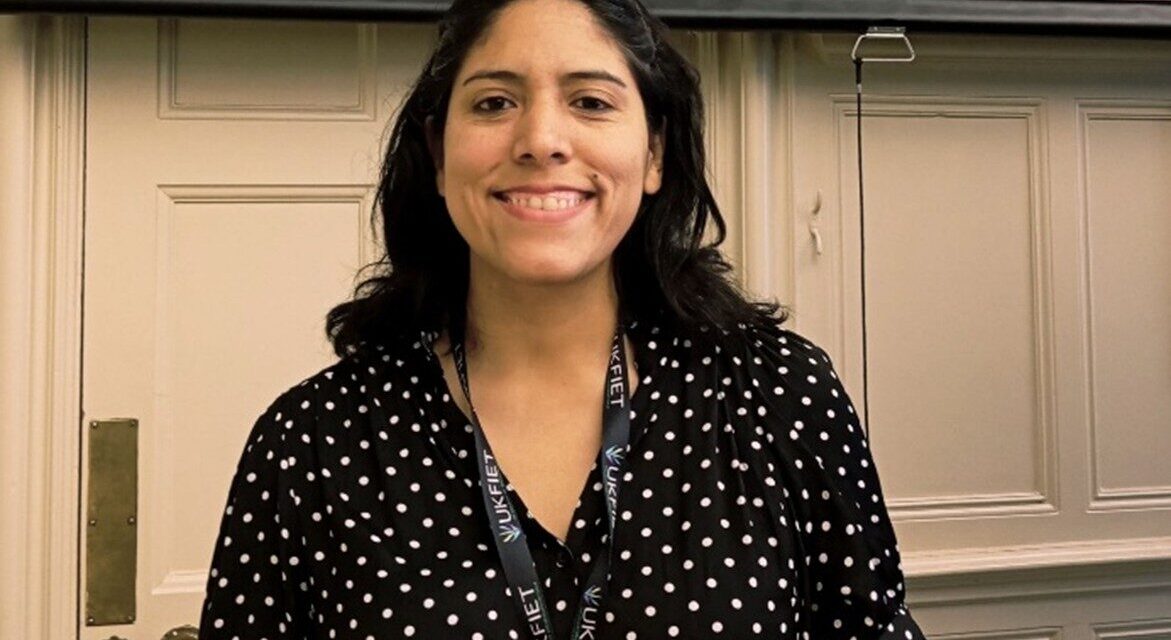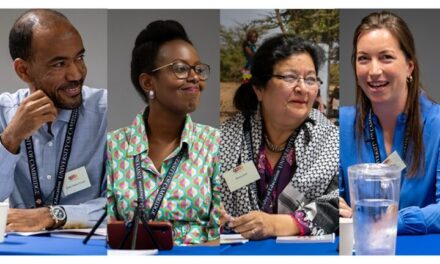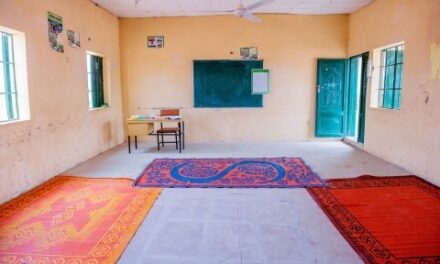This blog was written by Dr Silvia Espinal-Meza, University of Bristol. For the 2025 UKFIET conference, a record 37 individuals from 15 countries, including Silvia, were provided with bursaries to assist them to participate and present at the conference. The researchers were asked to write a short piece about their research or experience of attending the conference.
The UKFIET 2025 conference was my first education conference after completing my PhD in Education at the University of Bristol in June 2025. I came to Oxford with the aim not only of disseminating the findings of my thesis, but also of connecting with non-academic actors interested in social justice perspectives from the Global South. My participation was fully supported by an UKFIET bursary, which covered both my attendance and that of the other 36 fellows who came to the University of Oxford for a three-day residency at New College.
From the very first day of the conference, I recognised familiar academic faces from the UK community in the field of Comparative and International Education. However, it was an incredible surprise to see that many participants were not based in academia and had come to Oxford from NGOs and international foundations. Participants represented countries such as India, South Africa, Ghana, Pakistan, Tanzania and Ethiopia. We were hosted in the beautiful Examinations Building, and the coffee breaks offered a space for rich conversations with colleagues interested in educational themes, ranging from early childhood to global policies—including epistemologies from the Global South. I attended panels with academics, practitioners, policymakers and key actors involved in educational partnerships.
The second day began with my presentation ‘Social justice is giving a voice to those who have not had one: Practising critical pedagogies through Peruvian rural teachers’ narratives’. This presentation was part of the panel ‘Critical voices, inclusive futures: Rethinking teacher development for equity’, under the sub-theme of ‘Inclusion and Intersectionality’. The panel provided a rich space for discussing teachers’ practices in the UK, Tanzania and Peru from critical perspectives, including gender, disability, technology and indigenous knowledges. My colleagues from the University of Cambridge and EdTech Hub shared their extensive experiences of working in educational contexts with teachers in Africa and South Asian educators in London. My presentation highlighted the key role of teachers working in rural communities in Peru, who aim to revalorise indigenous knowledges rooted in Incan heritage in Cusco and Ayacucho (in the southern highlands of Peru). Through dialogue and the promotion of critical consciousness, these teachers are revalorising their indigenous identities in a country marked by racism and violence against indigenous populations.
Following my presentation, I engaged with other panels focusing on climate change, educational development and gender inequalities. I also took part in the Early Career Researchers and Practitioners networking session, which was a valuable space to meet new colleagues and exchange experiences and advice for progressing in this field. As a recent PhD graduate, I found a supportive environment for exploring opportunities in academia and international cooperation focused on strengthening educational systems across the globe. Some of the organisations included Save the Children, the National Foundation for Educational Research, Teach For All, and the SUMMA Foundation.
These rich discussions were accompanied by powerful speakers, including keynotes by Professor Ahmed Kamal, Professor Yusuf Sayed and Professor Arathi Sriprakash. They reminded us not to remain silent in these challenging times, and that education should serve not only as a space for reflection and learning, but also as a platform for advocating justice.
In sum, the UKFIET conference offered a meaningful space for collaboration and exchange that reaffirmed my vocation for education as a tool for social justice and the revalorisation of knowledges from historically-marginalised communities.




